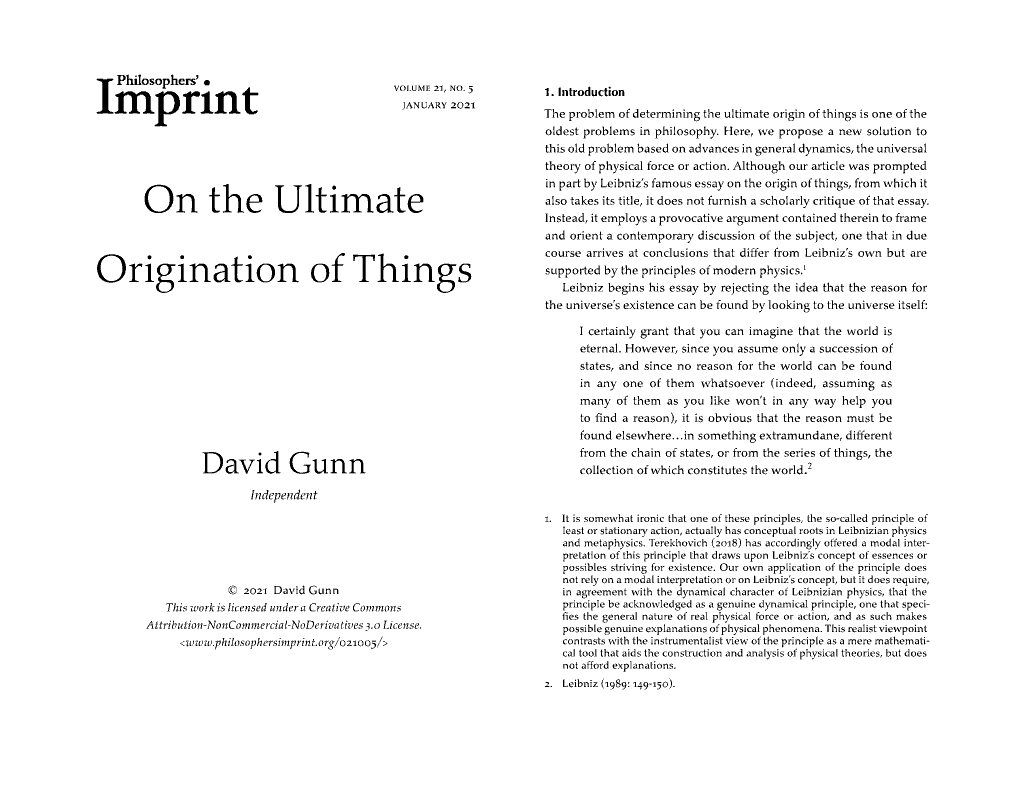On the Ultimate Origination of Things
Skip other details (including permanent urls, DOI, citation information): This work is licensed under a Creative Commons Attribution-NonCommercial-NoDerivatives 4.0 International License. Please contact [email protected] to use this work in a way not covered by the license.
For more information, read Michigan Publishing's access and usage policy.
Abstract
Why does the universe exist rather than not exist? And why is it the way that it is and not otherwise? Some philosophers have contended that it is reasonable to ask such questions even if the universe is eternal, or held to be so. And some, Leibniz for instance, have claimed in addition that such questions can never be satisfactorily answered by looking to the universe itself, but only by acknowledging the reality of an extramundane and absolutely necessary being as the ultimate origin of things. To all appearances, these claims remain viable. There seems, at any rate, to be nothing in modern cosmology that rules them out. Even so, it is argued here that certain developments in general dynamical theory preclude an extramundane origin, without, however, impugning the legitimacy of our existential questions or contradicting the idea that there exists an absolutely necessary being.



